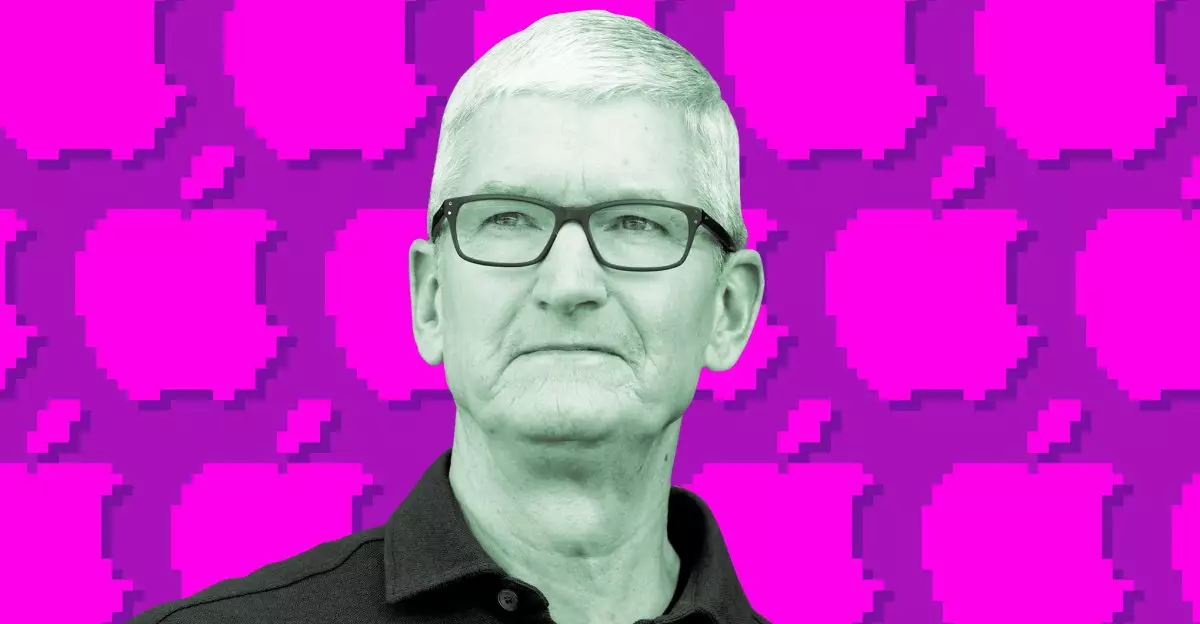Apple’s recent internal gathering underscores a pivotal moment in its history—one where artificial intelligence is positioned not as a fleeting trend but as a frontier as transformative as the internet or mobile technology. CEO Tim Cook’s bold declaration that AI represents “as big or bigger” than these foundational advances highlights the company’s recognition of AI’s strategic importance. Yet, beneath this optimistic rhetoric lies a complex reality: Apple’s cautious pace and internal challenges suggest a cautious but determined march toward innovation. Cook’s emphasis on “investing” and “grabbing” this opportunity reveals an understanding that in the race for AI dominance, delay can be costly. Apple’s challenge lies in balancing its reputation for polished, user-centric products with the demands of rapid AI development—a domain characterized by rapid iteration, fierce competition, and high risks.
Lessons from the Past and the Need for Boldness
Throughout history, Apple has often adopted a strategy of being late to the party but excelling once it enters the market. The company’s reluctance to be first in key categories like smartphones and tablets wasn’t a sign of weakness but a testament to its focus on quality and user experience. Now, as AI emerges as the next major frontier, Cook’s analogy signals an intent to apply this tested approach—understanding that rushing to be first might lead to compromised quality. However, AI advancements require a delicate balance between innovation speed and reliability, a tension Apple must navigate carefully. Their recent stumble with Siri’s upgrade reveals that even industry giants struggle to get it right initially. The crucial lesson here is that Apple must leverage its strengths—design, privacy, seamless integration—while embracing the iterative, experimental nature of AI development.
The Talent and Technology Gap
One of the most telling signs in Apple’s AI journey is the talent drain, with some experts leaving for competitors like Meta. The “superintelligence” hiring spree at Meta underscores how fierce the war for AI talent has become. For Apple, this signals that while it publicly commits to AI, internally, it faces a skills gap—an Achilles’ heel in a domain that evolves at warp speed. This challenge should propel Apple to double down on attracting top talent and fostering a culture of innovation that can challenge the likes of Meta and Google. Without a talented team capable of pushing the boundaries, even the most ambitious vision risks remaining aspirational rather than operational.
What emerges from this internal meeting is a clear message: Apple recognizes AI’s relentless potential and is prepared to evolve, albeit cautiously. This is a company that has historically preferred perfecting the product first, but AI demands a different mindset—one of accelerated experimentation and risk-taking. If Apple can harness its strengths—its design ethos, user trust, and commitment to quality—while fostering bold innovation and talent acquisition, it could redefine its position in the AI-powered era. The journey is fraught with uncertainty, but the stakes have never been higher. Apple’s ability to balance prudence with daring innovation will ultimately determine whether it remains a follower or becomes a pioneering leader in the AI revolution.

